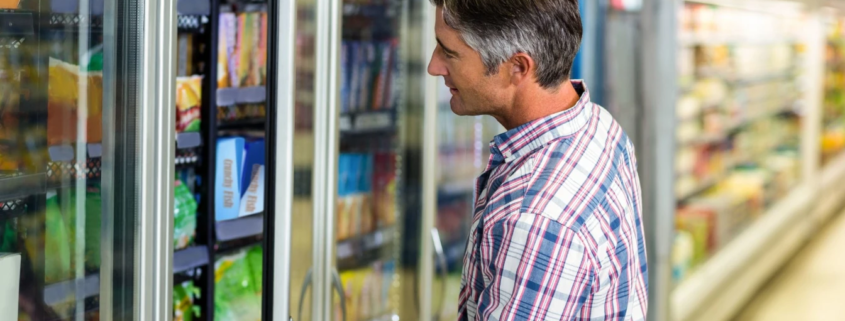Navigating Net Zero: Top Challenges Food Retailers Face with Consumer Demand for Sustainable Operations
Since the Climate Change Act came into force in 2008, industries notorious for high energy usage, like the food chain, have been under pressure to reduce carbon emissions and meet net-zero targets.
As the population becomes increasingly aware of the environmental impact of their purchases, food retailers face mounting pressure from consumers to reduce their energy consumption.
“Approximately 40% of food retailers have set net-zero targets for 2050.” Source: Field to Market
Today’s consumers are increasingly choosing stores and brands that align with their environmental values. They are not just asking for sustainability; they’re demanding it, expecting retailers to disclose and actively reduce emissions across their entire value chain.
Meeting these demands is not just a tall order—it’s a complex challenge that requires strategic planning and innovative solutions. With vast refrigerated aisles and intricate supply chains, the journey to sustainability isn’t a straightforward path for retailers.
Navigating these challenges will require adopting new technologies, instilling a sustainability culture within the organisation, engaging with stakeholders, and progressively shifting towards cleaner practices.
Energy usage in the food chain
Energy usage in food retail spans from energy-intensive refrigeration units to keep perishables fresh, efficient lighting solutions to illuminate expansive store layouts and the complex logistics to get products on the shelves. All these operations are an integral part of the food chain and typically result in a considerable carbon footprint.
Imagine each stage of the supply chain, from production to delivery, with its own emission challenges.
Coupled with this are pressures from multi-regional and dispersed supply chains; each has to be assessed independently for energy efficiency, and each region has its own regulations and energy sources, so this is a challenging task.
Advanced technology and collaboration across the entire value chain are needed to shift towards more sustainable practices, but it takes work, given the varying degrees of sustainability practices currently in place among suppliers.
Transportation of goods often relies on fossil fuels, a significant emission source. Optimising logistics through ‘smarter’ routing systems and investing in electric or hybrid delivery fleets can mitigate some of these impacts.
Refrigeration is essential for keeping perishable goods fresh but also a pain point when it comes to sustainability as they are notorious for their high energy consumption. A typical supermarket in the UK uses around 700–1,000 kWh of energy per square metre. Science Direct breaks down energy use: Refrigeration: 30–50%
Lighting: 15–25% Space conditioning: 20%.
“Refrigeration systems in supermarkets can contribute up to 60% of a store’s total energy consumption.” Source: Science Direct
The green consumer
Interestingly, despite these challenges, there’s an optimistic wave. Many consumers are ready to dig deeper into their pockets for sustainable products. This trend presents opportunities for retailers to invest in energy-efficient technologies and renewable energy sources, eventually meeting consumer expectations and environmental needs.
The Harvard Business Review believe there has never been a better time to launch a sustainable offering with consumers—particularly Millennials—saying they want brands that embrace purpose and sustainability, and 65% saying they want to buy purpose-driven brands that advocate sustainability.
Committing to innovation
By investing in energy-saving technologies and leveraging partnerships with technology companies, retailers can pave the way to meet their net-zero expectations, reduce their environmental impact and align with consumer values.
The journey to net-zero operations may be fraught with obstacles, but it is also an opportunity. For every hurdle in reducing energy consumption and transforming supply chains, there lies the potential to forge stronger connections with conscientious consumers and set industry benchmarks.
Embracing these challenges is not just about survival; it’s about leading the way towards a greener future. By committing to innovation, leading by example, ensuring compliance, and transforming towards sustainability, your company can inspire new ways of doing business and position itself as a leader in the sustainable retail landscape.
Further reading: Climate Change: And The Food Industry





